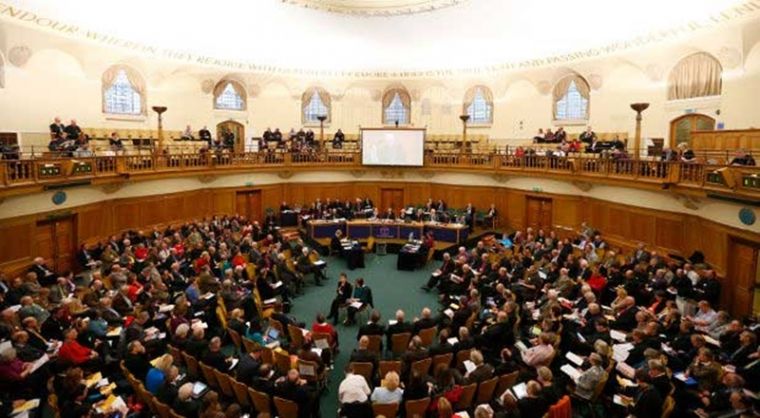Apart from a big fight over homosexuality, what else is happening at General Synod?

Sex captures our attention all too easily. And the juicy prospect of the Church's secret conversations on its approach to gay relationships will obviously be the focus of much of the media attention around the forthcoming general synod.
But before this more sensational activity, there are others matters to attend to. In response to panic about declining numbers and an rapidly aging population, the Archbishops of Canterbury and York launched "renewal and reform", a salvation project for the Church of England. Synod's secretary general William Nye described it as the "main theme" of this meeting and could be a welcome distraction for a Church that is in embroiled in difficult questions over gay marriage.
But few people seem to be able to define what the programme actually is. Least of all, it appears, the Church's own governing body. Despite its launch more than a year ago, this weekend synod will be asked to debate what the vision for this initiative actually is. Nye said the Archbishops' Council was "inviting the synod to endorse a vision" that was both "hopeful" but also "realistic".
Under the motif of reform the synod will also be asked to pass a simplification to a number of Church laws. The chief legal adviser to the Church, Stephen Slack, said it was "over-regulated by a great deal of law", much of which was "unnecessary and burdensome". I'm sure that is not news to many.
The Legislative Reform Measure will mean some laws can be amended or repealed by simple "orders". Seperate pieces of new legislation will consolidate existing laws into one place and remove items considered "obsolete". But Philip Jones on the blog site Ecclesiastical Law is not convinced and said "reducing burdens is not as simple as it sounds".
He wrote: "The Measure will throw a spanner into the legislative works. It adds a new legislative procedure that serves essentially the same purpose as the existing one, with the two procedures operating side by side."
Beyond the "reform" agenda, synod will also vote on legislation that should not create much disagreement as it does not change much. Then again that has never stopped the Church before.
The law would drop the requirement for priests to traditional dress in special services and allow more relaxed attire. As many priests do these regardless of the law it shouldn't mean much. But the change comes with the note that priests' clothing must be "seemly" and not be a "departure" from Church doctrine. This has led to some wonderful reports of the Church banning mankinis in the pulpit.
The change would also formally allow for the burial of people who committed suicide "in accordance with the normal burial service". Technically the CofE still has a ban on using the normal burial service for suicides. But as David Pocklington noted by quoting Hamlet, this is "more honour'd in the breach than the observance"'.
In lighter moments over the synod first day and a half, attendees can expect to hear from the Archbishop of York on his six-month sabbatical pilgrimage around his diocese. They will also enjoy a welcome by Landesbischof Ralf Meister from the Evangelical Church in Germany ahead of the 500th anniversary of the Reformation in 1517.











